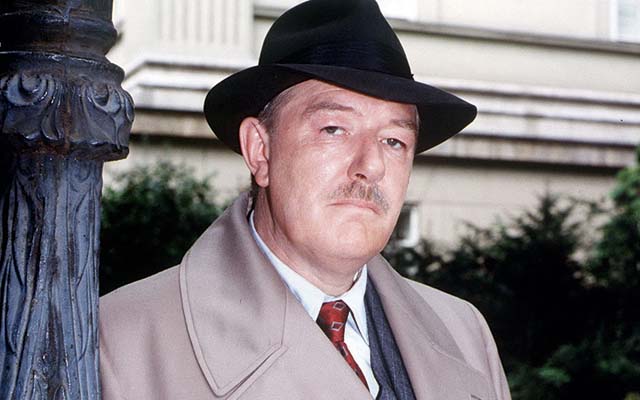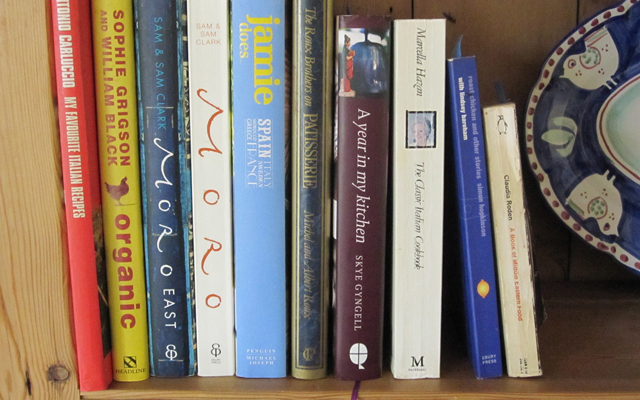Book review: The best thriller books this year
Murder they wrote: a round-up of the latest thrillers.


Penguin Classics has set itself the task of publishing new translations of all 75 of Belgian writer Georges Simenon’s novels featuring his pipe-smoking, beer-drinking Detective Chief Inspector Maigret. In the ninth of the series, A Man’s Head (Penguin Classics, £6.99 *£6.64), Simenon’s imperturbable inspector puts his career on the line to rescue a man from the guillotine, a simpleton convicted of a seemingly open-and-shut case: the bloody murder of a rich American lady and her maid.
Maigret pits his wits against a brilliant adversary, a Czech immigrant who, 20 years earlier, would have been an anarchist, but whose ambition in 1930s Paris is to pull off the perfect crime. The detective tracks both the wrongly accused and his eventual quarry through the French capital, from the loading docks of the Seine to the cafes of Montparnasse.
‘Paris was wearing the cheerless face it always has in the unlovely days of October. Harsh daylight fell from a sky which resembled a dirty ceiling,’ Simenon writes. This is a bleak novel in which, at the end, not even the warm welcome of the inspector’s home offers any comfort.
In 2008, Japanese housewife Kanae Minato became a writer and, in Confessions (Mulholland Books, £8.99 *£8.54), she takes a sharp axe to our idealised conceptions of home and school, youth and romance. Now translated into English, her dark thriller opens arrestingly with a teacher calmly explaining to her charges how she will have her revenge on the two pupils responsible for the death of her young daughter. What follows is a series of admissions told from different perspectives and in different forms speeches, diaries, final testaments.
As in Gone Girl, its American cousin, it all turns a bit too crazy and implausible at the end, but Confessions is a gripping portrayal of a society in which adults are too busy to attend to their children and children too alienated to find their moral bearings.
London, Paris, Berlin, Syria, Yemen and Dagestan Close Call (Bloomsbury Publishing, £12.99 *£11.69) from Stella Rimington is a globetrotting affair, its action switching from one country to the next as MI5’s Counter-Terrorism team aided, and sometimes stymied, by their French and American colleagues tries to track the progress of a cache of arms destined for an al-Qaeda splinter cell somewhere in Europe. As a former Director General of MI5, the author is inevitably compared to former spook John le Carré and, although she’s not in his league (but then who is?), as the plot culminates in a Manchester warehouse, she ably ratchets up the tension and certainly shows no sentimentality towards the fate of her heroes.
The discovery of skeletal remains high up in a Victorian Gothic turret in Edinburgh sets some difficult questions for Karen Pirie of Police Scotland’s Historic Cases Unit. How did it get there? And why does the skull sport a bullet wound? The answers lie in the Balkans War of the 1990s and Val McDermid’s The Skeleton Road (Little, Brown, £18.99 *£16.99) alternates between the present and the past, from Edinburgh to Dubrovnik and a small village in Croatia with a terrible secret.
Sign up for the Country Life Newsletter
Exquisite houses, the beauty of Nature, and how to get the most from your life, straight to your inbox.
In addition to the tenacious Pirie, the cast of characters includes Oxford dons, investigators for an International Criminal Tribune and a Croatian general. It’s a knotty tale and fascinating to watch Pirie getting closer and closer to the truth. It feels immediate, too, with references to Edward Snowden, WikiLeaks and a certain recent referendum.
Wayfaring Stranger (Orion, £19.99 *£16.99) by James Lee Burke is a sprawling American Western that opens with a memorable encounter with gangsters Bonnie and Clyde, then spends some time abroad behind enemy lines in war-torn Germany, before settling into its tale of corruption amid the oil fields of mid-century Texas.
Its hero, Weldon Avery Holland, wishes for ‘the moral clarity and violent alternatives’ of the 19th-century Wild West and despairs of the bureaucrats, cowards and bullies who have tamed that way of life. Weldon’s grandfather, Hackberry Holland, even when confined to bed with a revolver under his pillow, all but steals the show. Half American noir, half philosophical rumination on good and evil, Wayfaring Stranger reads like it’s been pickled in bourbon.
But Ruth Rendell’s The Girl Next Door (Hutchinson £18.99 *£15.99) is the pick of the bunch. Although ostensibly a traditional whydunnit, in reality, it’s a cleareyed examination on the pains and perils of growing old. Regrets, loneliness and cancer are the terrors lurking in the shadows here. As with The Skeleton Road, a grisly crime from the past resurfaces, but the author firmly relegates the police to the sidelines in favour of a number of septuagenarians whose childhood memories of the green Essex meadows during the Second World War may hold the solution to a murder.
The main character is an odd one; widower Michael Winwood is half-broken by grief, prone to crying and writes poetry about buses, but, like Inspector Maigret (albeit in his own fashion), he gets his man.

Christmas gift ideas: Children's books
We round up the best children's books on the market that make wonderful Christmas gifts and stocking fillers.

Christmas gift ideas: Drink books
We round up the best drink books on the market that make wonderful Christmas gifts.

This year’s best cookbooks
We list our favourite cookery books published this year.

Inspirational gardening books
As the dark nights of winter fall, now is the time to plan next year's garden. Alan Titchmarsh rounds up
Country Life is unlike any other magazine: the only glossy weekly on the newsstand and the only magazine that has been guest-edited by HRH The King not once, but twice. It is a celebration of modern rural life and all its diverse joys and pleasures — that was first published in Queen Victoria's Diamond Jubilee year. Our eclectic mixture of witty and informative content — from the most up-to-date property news and commentary and a coveted glimpse inside some of the UK's best houses and gardens, to gardening, the arts and interior design, written by experts in their field — still cannot be found in print or online, anywhere else.
-
 Helicopters, fridges and Gianni Agnelli: How the humble Fiat Panda became a desirable, design classic
Helicopters, fridges and Gianni Agnelli: How the humble Fiat Panda became a desirable, design classicGianni Agnelli's Fiat Panda 4x4 Trekking is currently for sale with RM Sotheby's.
By Simon Mills
-
 What's a 'wellness village' and will it tempt you back into the office?
What's a 'wellness village' and will it tempt you back into the office?The team behind London's first mixed-use ‘wellness village’ says it has the magic formula for tempting workers back into offices.
By Annunciata Elwes